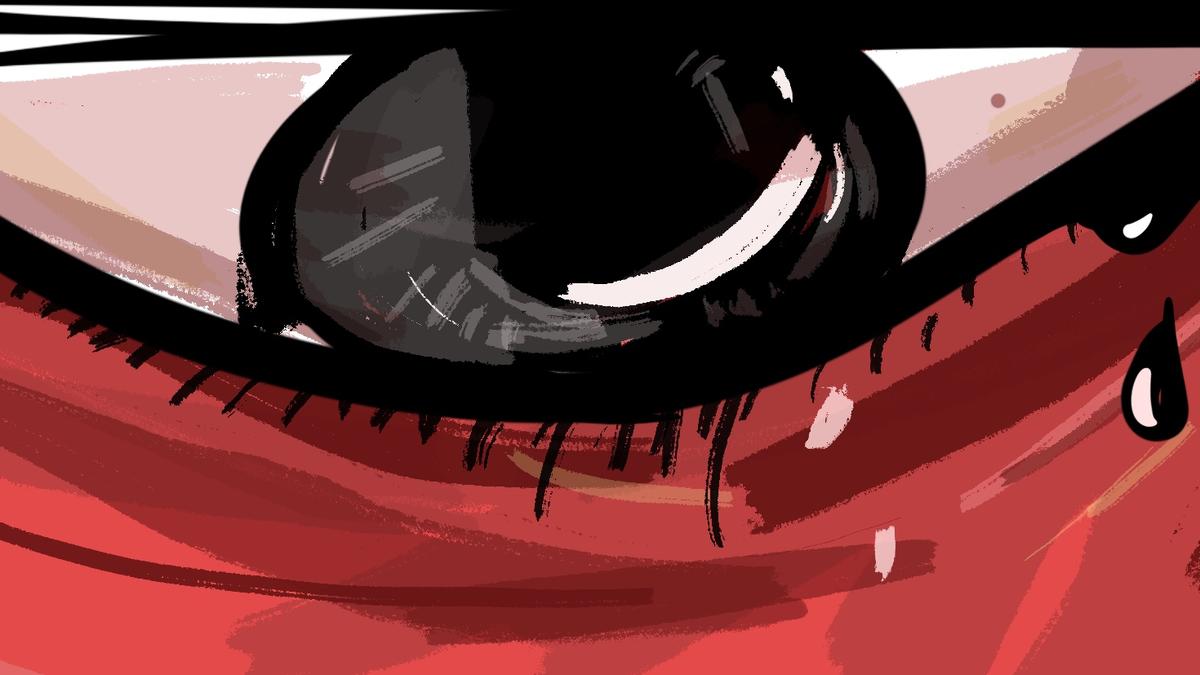I don’t tear up easily. I didn’t cry when my parents died. There was sorrow and overwhelming grief, but the tears just never came. I didn’t cry when I was publicly humiliated, or deeply hurt, or had a serious setback. I don’t cry on occasions when most people do — at cremations, farewells, or after watching a gut-wrenching movie. Does that make me less human?
These questions flashed through my mind as I saw Amanda Anisimova weep profusely on world television after her devastating loss in the Wimbledon final. There was no attempt to hold back or paste on a false smile. She sat there, in full view of the cameras, overwhelmed by emotion. Some thought it awkward or unsportsmanlike. I thought it was honest — and brave. It made me reflect not just on her tears, but on my own absence of them, and what society makes of both.
We have come to equate crying with weakness, oversensitivity, or a loss of control. Especially for men, tears are seen as something to suppress. “Don’t cry like a girl” was a line thrown around freely when I was growing up in the macho atmosphere of a boys-only boarding school. Older and hopefully wiser now, I see that it wasn’t just a put-down for boys; it was also a quiet insult to girls.
Boys do cry
There is a lot of misogyny baked into our discomfort with crying. From an early age, boys are taught to bottle things up, while girls are shamed for being “too sissy” or emotional. At home and in school, children are brought up to believe that composure equals strength and tears signal weakness or instability.
But crying is far more nuanced than we make it out to be. Grief is, of course, the most common trigger. The loss of someone we love can break us open. But people also cry out of frustration, anguish, and sheer exhaustion. I know someone who once cried for hours after missing an international flight — not because of the disruption itself, but because it came after months of stress. The missed flight was simply the tipping point.
And then there are tears of joy. I saw my brother, an otherwise stoic father, cry as he gave his daughter away in marriage. A young woman I know cried when she finally saw her name on the list after clearing the IAS exam in her third attempt. “I didn’t cry when I failed twice,” she told me. “But I cried when I made it.” Sometimes, relief can be as overwhelming as sorrow.
We have seen many public figures cry. Barack Obama cried while addressing the nation after the Sandy Hook school shooting. After losing the Australian Open final to Nadal in 2009, Roger Federer, through copious tears, said, “God, this is killing me.” Hem Barua choked up in Parliament while recounting the plight of flood victims in Assam. Rahul Dravid teared up during his farewell speech. Those tears didn’t diminish them; they made them more relatable, more deeply human. They elevated them in our eyes. And yet, we continue to judge tears — especially in public and professional life. I once watched a colleague being gently chided by a senior officer after he choked up while recounting a tragic experience. “You shouldn’t get emotional in public,” the senior said. But why not? Why is authenticity unwelcome in spaces where empathy should matter most?
Science tells us that crying is therapeutic. Emotional tears contain stress hormones. Crying helps release tension, soothes the nervous system, and brings a sense of relief. That’s why people often say, “I feel lighter after a good cry.” In Japan, there are even “crying clubs” where people gather to let it all out together — a practice called rui-katsu, or “tear-seeking”. Crying isn’t dysfunction. It’s the body’s way of healing.
Not everyone cries easily. Some, like me, feel deeply but express emotion differently. I believe that is perfectly okay. People vary in temperament, personality, and hormonal make-up. But we must stop believing that crying — or not crying — tells us anything definitive about a person’s character. Some of the strongest people I know cry without hesitation. Some of the most emotionally closed have not cried in decades. What matters is whether we allow ourselves to feel fully.
We need to see tears not as a breakdown of control, but as a breakthrough of honesty. I have learned not to feel awkward when someone cries in front of me. I no longer rush to change the subject or offer sympathy saying, “Oh, don’t cry.” I let them cry because sometimes that is exactly what they need. We live in an age of pretentious appearances — curated social media, measured speeches, the pretence of always being in control. In such a world, tears are one of the last truly honest acts. They say, “This matters.” Whether it’s sorrow, pride, frustration, or joy, crying is an anchor to something real. It’s a reaffirmation that we are human.
The writer is a former Governor of the Reserve Bank of India
Published – August 10, 2025 12:20 am IST
